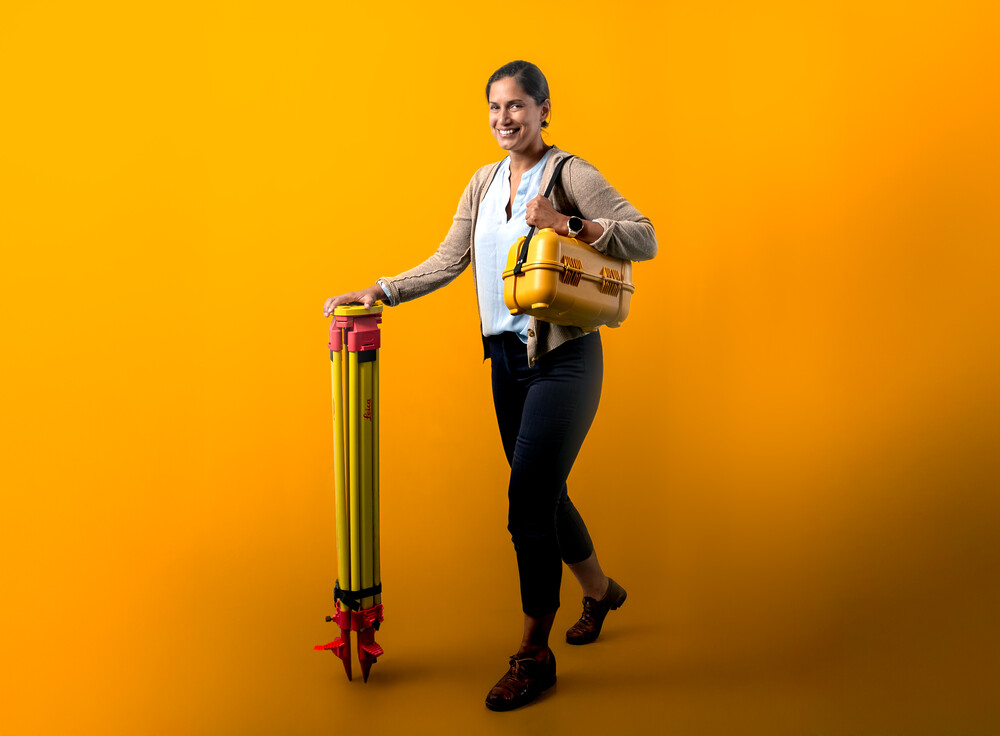
‘By unravelling the stories written in buried sediments, we can better understand our planet’s past, adapt to its present challenges, and safeguard its future for generations to come.’
 Professor Nicole KHAN
Professor Nicole KHANAssistant Professor of the Department of Earth Sciences
- 2023 Elected to leadership of the Marine and Coastal Geoscience Division of the Geological Society of America
- 2023 Appointed as External Editor for Communications Earth & Environment
- 2022 Best Paper Award, Global and Planetary Change
- 2021 Early Career Scheme Award, Hong Kong Research Grants Council
- 2018 Elected Vice President, INQUA Coastal and Marine Processes Commission
Research Interests:
Understanding local to global drivers of relative sea-level change; investigating the impact of extreme events (floods, storms, tsunamis) on coastal systems; assessing the resilience and vulnerability of coastal ecosystems; developing sedimentary eDNA and geochemical proxies to reconstruct past environmental changes.
Think of the Earth as a vast library, each sediment layer a page of history, preserving the secrets of our planet’s climatic past, present, and future. Professor Nicole Khan of the Department of Earth Sciences is a master at decoding these archives. Her work combines sedimentary records, microfossil analysis, and geochemistry to deepen our understanding of coastal systems across various timescales and to evaluate their future risks.
Unearthing the Planet’s Climatic Narratives
Khan's research is a quest to decipher the dynamic story of our coastal environments. She harnesses the power of sedimentary evidence, microfossil data, and geochemical markers to reconstruct and understand the impacts of historic and ancient storms, floods, and sea-level changes. This comprehensive approach not only paints a vivid picture of past events but also provides critical context for future coastal risk assessments.
‘My research is driven by the need to understand the spatial and temporal variability of coastal inundation and its relationship with global climatic shifts,’ she explains. ‘By synthesising geological records with modern data, we can better predict and mitigate future coastal hazards.’
Breakthroughs in Coastal Ecosystems
One of Khan’s most impactful findings emerged from collaborations with tidal wetland ecologists. ‘To anticipate how these important ecosystems will respond to rapid rates of sea-level rise projected for the future, we looked at their response in the past from the geological records during periods of rapid sea-level rise,’ she reveals. ‘We identified that tidal wetlands can only sustain accretion rates up to ~7 mm/year of RSL rise, beyond which they fail to adapt.’
 This pivotal research, published in Science (2020) and Nature (2023), has profound implications for understanding the vulnerability of coastal ecosystems to climate change. It has informed restoration efforts and blue carbon initiatives and was featured in the Intergovernmental Panel on Climate Change Sixth Assessment Report.
This pivotal research, published in Science (2020) and Nature (2023), has profound implications for understanding the vulnerability of coastal ecosystems to climate change. It has informed restoration efforts and blue carbon initiatives and was featured in the Intergovernmental Panel on Climate Change Sixth Assessment Report.Khan’s research bridges science and practice by informing strategies for climate adaptation, from wetland restoration to blue carbon accounting. Her findings provide critical insights for long-term planning under accelerating sea-level rise.
Locally, in Hong Kong, her studies on historical wetland changes build a stronger foundation for regional environmental preservation. By connecting scientific research to practical challenges, her work helps ensure that discoveries in the field translate into meaningful environmental outcomes.
Leading with Vision and Collaboration
At the core of Khan’s success is her dynamic, multidisciplinary research team, which is at the forefront of developing novel methodologies, such as environmental DNA (eDNA) analysis, to extend our understanding of past sea-level changes beyond traditional observational limits.
‘Our recent advancements include creating a global sea-level database and using these findings to inform models that project future changes,’ she shares. ‘Our future goals are ambitious but essential for advancing our knowledge and addressing the pressing challenges of climate change.’
A Legacy of Discovery
Khan’s passion for uncovering Earth’s secrets is evident in her long-term projects that aim to create lasting impacts. One such initiative is the Geographic Variability of Holocene Sea Level (HOLSEA) project, which she launched in 2016 with support from the International Quaternary Association (INQUA). This ambitious project seeks to compile a comprehensive global database of sea-level records spanning the past 12,000 years.
‘The HOLSEA project is a monumental effort to make sea-level records from different regions and proxies comparable on a global scale,’ she elaborates. This centralised database will be a valuable resource for scientists worldwide, enhancing our understanding of the spatial and temporal drivers of sea-level changes. It will also refine the models used to project future sea-level scenarios, providing valuable information for coastal planning and mitigation strategies.
Transforming Knowledge into Action
Khan’s work transcends academic boundaries by contributing to policy and community preparedness for climate change. By translating her findings into strategies for adaptation, she ensures her research has a tangible impact on society.
Through her eyes, we glimpse a future where the past informs present strategies, ensuring that our coastal environments can withstand the challenges posed by a changing climate. By unearthing the stories written in the sediments beneath our feet, Khan is helping to shape a future where coastal environments are better equipped to face the challenges of a changing climate.
| < Home | Next > |

